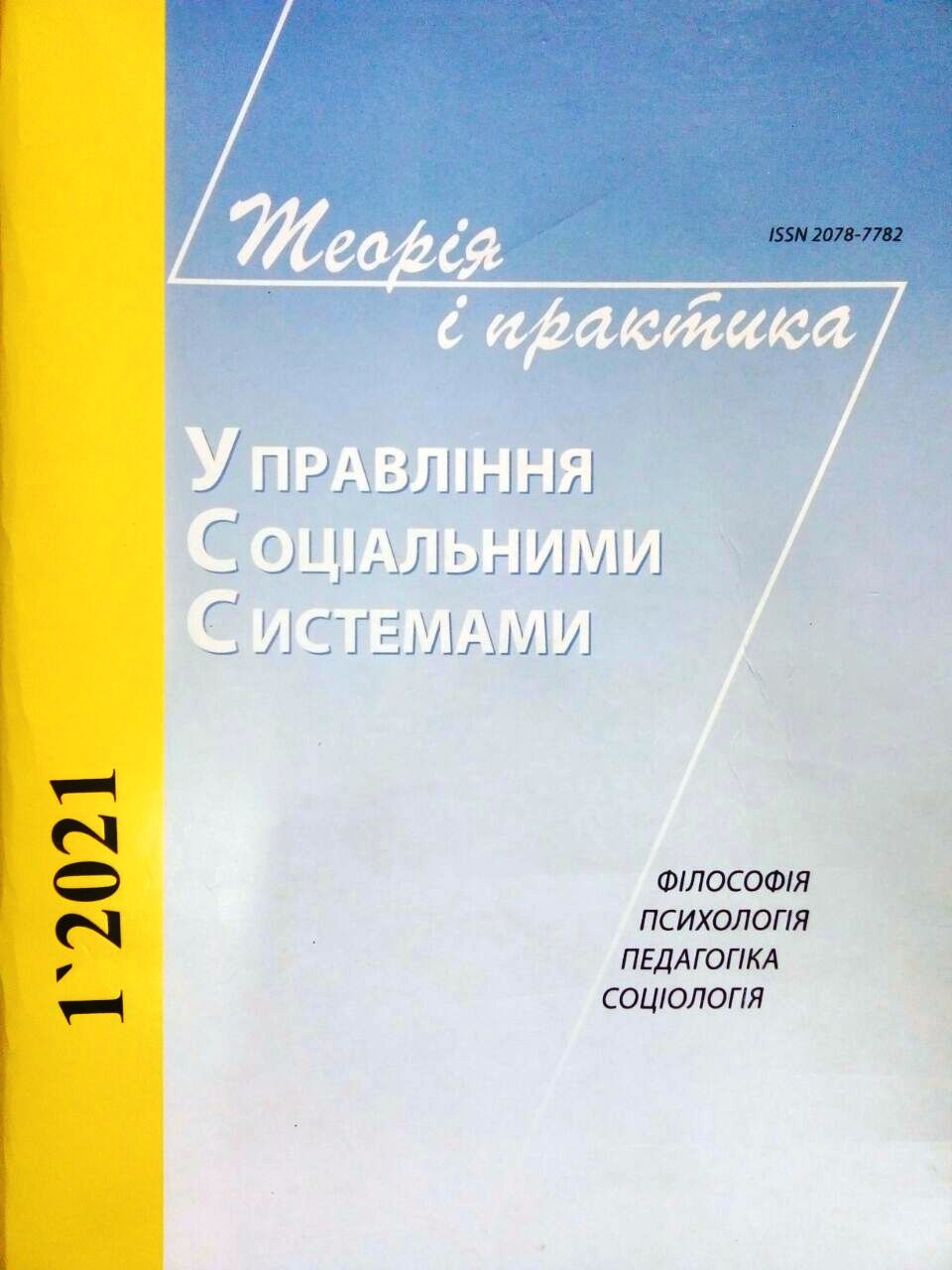ОСОБЛИВОСТІ ВИКОРИСТАННЯ РЕСУРСІВ КУЛЬТУРНОЇ СПАДЩИНИ У ПЕДАГОГІЧНОМУ УНІВЕРСИТЕТІ
DOI:
https://doi.org/10.20998/2078-7782.2021.1.01Ключові слова:
відкрита освіта, культурної спадщини Europeana, персональне навчальне середовище, креативне перетворення і критичне осмислення, засоби цифрової підготовки, формальна та неформальна освіта, студенти.Анотація
У статті досліджено проблемні питання більш широкого розуміння інклюзивної освіти, зокрема соціального виміру, що акцентують на відкритості та доступності освіти для всіх як основи вирішення суспільних викликів. Розглянуто особливості запровадження ресурсів цифрової культурної спадщини Europeana у навчальний процес, виховний потенціал якої у формуванні цифрової компетентності освітян обумовлює пошук інноваційних підходів та ресурсів. Пропонується впровадження курсів для студентів першого року навчання щодо особливостей застосування засобів цифрової підготовки, що підвищує рівень формування їхнього критичного мислення та креативності в умовах відкритої освіти.
Посилання
1. Bykov, V., Vernigora, S., Hurzhiy, A., Novokhatko, L., Spirin, O., Shishkina, M. (2019), “Design and use of open cloud-oriented educational and scientific environment of higher education institution”, [Design and use of open cloud educational and scientific environment of higher education institution], available at: http://journal.iitta.gov.ua/in-dex.php/itlt/article/view/
2. Boychuk Yu. D., Borodina O. S., Mykytyuk O. M. (2015), “Inclusive competence of a prospective teacher of health basics: monograph”, KhNPU, p. 140
3. Zolotukhina, S.T. (2015), “The use of ideas of V. Sukhomlinskiy in the preparation of the creative personality of a prospective teacher”, Scientific notes: Pedagogical sciences, no. 123 (I), pp. 41–44
4. Evdokimov, V. I., Oleinik, T.A., Gorkova, S.A., Mikityuk, M.V. (2002), “Workshop on the development of critical thinking: textbook. Allowance” , Kharkov: Tornado, p. 134
5. Kremen, V. H., Ilyin, V. V.(2020), “Presentation of visual literacy in the educational process and its explication in the culture of thinking”, Information technologies and teaching aids, available at: https://doi.org/10.33407/itlt.v75i1.3660
6. Kravtsov, S. A. (2013), “Professional group as a social system: problems of interaction”, Ukrainian society, vol.1 (44), pp. 141–156
7. Oleinik, T. A. (2014), “Personal and professional development of future teachers in terms of competence approach”,Pedagogical Almanac, vol. 24, pp. 166–172
8. Pogrebennik, V., Garnik, I. (2001), “Development of critical thin king skills of students in the context of the development of educational standards of Ukraine”, Proceedings of the International scientific-practical conference, Kyiv: Universe, p. 100, available at: www.istc.biz
9. Kalashnikova, S., Lugovoi, V., (2015), “Development of the quality assurance system of higher education in Ukraine”, Iinformation and analytical review eds, Kyiv: SE “Priorities”, p. 84
10. Conole, G., Brown. M. (2018), “Reflecting on the Impact of the Open Education Movement”, Journal of Learning for Development, available at: http://www.jl4d.org/index.php/ejl4d/article/view/314/346 [01.06.2020]
11. Downes, St. (2011), “The Role of the Educator, available at: https://www.downes.ca/cgibin/page.cgipost=54312 [01.05.2011]
12. Henderikx, P., Jansen, D. (2018), “The Changing Pedagogical Landscape: In search of patterns in policies and practices of new modes of teaching and learning”, available at: https://tinyurl.com/CPLreport2018
13. Kommers Pam, Lenting BF & CG van der Veer (1998), “Distributed Collaborative Learning in a Telematic Context”, “Telematic Learning Support and its Potential for Collaborative Learning with New Paradigms and Conceptual Mapping Tools”, Educational Media International, vol. 35 (2), pp. 100–105, available at: Doi: 10.1080/0952398980350208
14. Home: In Support of Excellence available at: https://designingoutcomes.com/
15. Kukharenko, V., Oleinik, T. (2019), “Open Distance Learning For Teachers”, available at: http://ceurws.org/Vol-2393/ [01.12.2020]
16. Pinchuk, O. P., Lytvynova, S. G., Burov, O. Yu. (2017): Synthetic educational environment – a footpace to new education. In: Information Technologies and Learning Tools, vol. 4, # 60, pp. 28-45, available at:https://journal.iitta.gov.ua/index.php/itlt/article/view/1831
17. Morris, S. M. EdCrunch 2020: Critical Digital Pedagogy after COVID-19 available at: https://www.slideshare.net/SeanMichaelMorris
18. Ossiannilsson, E., Williams, K., Camilleri, A. F., Brown, M. (2020), “Quality models in online and open education around the globe: state of the art and recommendations”, available at: http://icde.typepad.com/quality_models/ [01.12.2020]
19. Ní Shé, C.,Farrell, O., Brunton, J., Costello, E., Donlon, E., Trevaskis, S., Eccles, S (2019), “Teaching online is different: critical perspectives from the literature”, Dublin: Dublin City University, available at: Doi: 10.5281/zenodo.3479402
20. Truyen F., “Digital Transformation”, “ICT and Cultural Heritage: Let’s Rethink Open Access”, available at: https://culturalstudiesleuven.net/2020/09/15/digital-transformation-ict-andcultural-heritage-lets-rethink-open
21. Ubachs, G., Konings, L., Brown, M. (2020), “The envisioning report for empowering universities”, available at: http://empower.eadtu.eu/images/report/The_Envisioning_Report_for_Empowering_Universities_1st_edition_2017.pdf [01.12.2020]
22. Romanovskiy, O. G. (2020), “Correlation between self–assessment and self-confidence of students of technical institutions of higher education and methods of their activation” / O. G. Romanovskiy, T. V. Hura, V. Mykhailychenko // Teoriia i praktyka upravlinnia sotsialnymy systemamy, no. 4, pp. 41-50

##submission.downloads##
Опубліковано
Номер
Розділ
Ліцензія
Авторське право (c) 2021 Тетяна Олійник

Ця робота ліцензується відповідно до Creative Commons Attribution-NonCommercial-NoDerivatives 4.0 International License.
Автори, які публікуються у цьому журналі, погоджуються з наступними умовами:- Автори залишають за собою право на авторство своєї роботи та передають журналу право першої публікації цієї роботи на умовах ліцензії Creative Commons Attribution License, котра дозволяє іншим особам вільно розповсюджувати опубліковану роботу з обов'язковим посиланням на авторів оригінальної роботи та першу публікацію роботи у цьому журналі.Автори, які публікуються у цьому журналі, погоджуються з наступними умовами:
